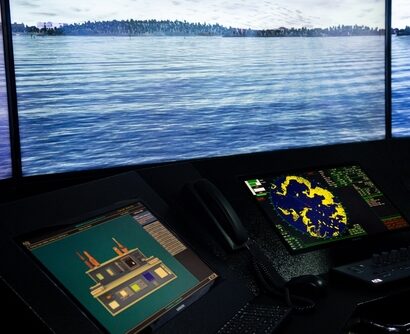Abstract: Investing in space exploration can benefit humanity. Further investment in the aerospace sector could potentially lead to technological advancements, scientific discoveries, and perhaps the possibility of interstellar travel. It sounds far-fetched, but various industries, including healthcare, transportation, and agriculture, stand to gain from such advancements. Space research might improve our understanding of the universe, including the advancement of our other surroundings. Investment in space has already led to significant discoveries in fields such as medicine, telecommunications, and environmental science. Problems such as overpopulation and limited resources could be mitigated via solutions derived from interstellar travel. Still, overcoming the challenges will require significant investment and collaboration from different stakeholders. Governments, private companies, and academic institutions are urged to prioritize investment in space exploration to solve current and future world problems.
Problem statement: How could solutionists peacefully use the potential of outer space to explore resources and energy?
Bottom-line-up-front: Investing in space exploration might lead to significant social progress without resorting to wars.
So what?: Governments, private companies, and academic institutions should prioritize investment in space exploration to tackle global issues like overpopulation and resource scarcity. Extra investment in the aerospace sector could result in technological advancements, scientific discoveries, and the potential for interstellar travel. By offering solutions to global issues, several industries, e.g., healthcare, transportation, and agriculture, could benefit from exploring outer space.

Source: shutterstock.com/Sergey Nivens
A Revolution To Our Lives
The aerospace sector previously enabled communication satellites, GPS, and weather forecasting, which revolutionized our way of life. By investing more in space exploration, new technologies that could benefit various industries (e.g., healthcare, transportation, and agriculture) could be researched and developed. Moreover, technological advancements in the aerospace sector can lead to better yet undiscovered materials, more efficient propulsion systems, and improved environmental control systems. Of course, the ultimate goal is to improve the quality of life for humanity.
Technological advancements in the aerospace sector can lead to better yet undiscovered materials, more efficient propulsion systems, and improved environmental control systems. Of course, the ultimate goal is to improve the quality of life for humanity.
Health Care, Transportation and Agriculture
In healthcare, space technology can be used to develop better medical imaging systems. Take, for example, Magnetic Resonance Imaging (MRI) machines, which use superconducting magnets designed for space applications. The development of new pharmaceuticals and medical treatments, such as vaccines for diseases, can also result from space research.
In transportation, space technology could improve safety and efficiency. Developing lightweight materials and more efficient propulsion systems can produce more fuel-efficient cars and aeroplanes. An exemplary innovation in the field is satellite navigation systems (such as GPS), which helps drivers navigate more safely and efficiently while also helping logistics companies optimize their routes and reduce fuel consumption.[1]
In agriculture, space technology can be used to improve crop yields and reduce waste. Satellite data can be used to monitor weather patterns and predict crop yields, helping farmers make better decisions about planting, fertilization, and irrigation. Space technology can also facilitate monitoring soil moisture and nutrient levels, assisting farmers in making more efficient use of resources and reducing waste.[2]
Scientific Discoveries
Scientific discoveries in the aerospace sector have revolutionized our understanding of the universe. The advancements made by NASA’s Kepler mission in discovering thousands of exoplanets have shed light on the potential for extraterrestrial life. The search for habitable exoplanets has mainly been centred on finding planets that orbit within their star’s habitable zone. However, habitability depends on factors such as atmospheric composition, surface temperature, and water and organic molecules.[3]
One may combine techniques such as direct imaging, spectroscopy, and transit observations to identify potentially habitable exoplanets. Consider developing new instruments and technologies that can provide more precise measurements of exoplanet properties, such as mass, radius, and atmospheric composition. In studying exoplanets and their potential habitability, we can better understand the conditions necessary for life to exist beyond Earth.
In studying exoplanets and their potential habitability, we can better understand the conditions necessary for life to exist beyond Earth.
Additionally, space exploration has led to significant discoveries, including crucial information about Mars and its geological history. NASA’s Mars missions have revealed that the planet has the potential for microbial life. The Rosetta spacecraft’s mission to study Comet 67P has provided valuable insights into the origins of our solar system. These discoveries have not only contributed to our understanding of the universe, but they have also led to new technologies and advancements in various fields, such as medicine, telecommunications, and environmental science.
Space exploration has opened doors to new frontiers of discovery. Further exploration of space could inspire more exciting discoveries, ones which might revolutionize our understanding of the universe and our place in it. Space exploration has played a vital role in technological advancements, and its contributions to our societies are immense. For example, telecommunication technologies like GPS and satellite TV have emerged from space research. These technological advancements have played a significant role in shaping our daily lives, and we are only beginning to understand the potential benefits of space exploration.
Interstellar Travel
The investment of humankind’s energy in space exploration has led to the possibility of interstellar travel, which holds the potential to provide solutions to two global problems: overpopulation and limited resources. Interstellar travel, however, is not without its challenges and risks. G. Landis’ research paper examines the challenges and opportunities of interstellar travel, including propulsion systems, radiation shielding, and crew support systems.[4] Overcoming these challenges will require significant investment (both time and money) in aerospace and collaboration between various scientific disciplines.
The potential benefits of interstellar travel make the investment worthwhile. Interstellar travel could allow humans to explore other worlds and even colonize them, providing an alternative solution to the growing problems of overpopulation and limited resources. By investing in the aerospace sector, we can develop the technologies necessary to make interstellar travel a reality.[5]
However, interstellar travel also poses some risks, including human error, technical malfunctions, and the potential spread of harmful microbes to other planets. Proper precautions and regulations must be put in place to mitigate these risks and ensure safe and responsible exploration and colonization of other worlds. This requires collaboration between scientific disciplines and the involvement of policymakers and regulatory bodies.
Investing in interstellar travel and overcoming its challenges could yield significant benefits. Still, it also requires a long-term commitment and significant investment of resources, covering but not limited to Research & Development, scholarships and stable funding. The exploration and colonization of other worlds has the potential to create solutions to some of the most pressing problems facing humanity, including resource depletion and climate change.[6] Therefore, it is essential to invest in the aerospace sector to develop the necessary technologies and regulations to ensure safe and responsible exploration and colonization of other worlds.
Investing in interstellar travel and overcoming its challenges could yield significant benefits. Still, it also requires a long-term commitment and significant investment of resources.
The aerospace sector has opened up the possibility of interstellar travel, which can potentially provide solutions to the problems of overpopulation and limited resources on Earth. Investing in the aerospace sector and overcoming the challenges of interstellar travel requires collaboration between various scientific disciplines and policymakers. Investing in the aerospace sector and developing the necessary technologies and regulations can ensure the safe and responsible exploration and colonization of other worlds, ultimately benefiting humanity.
Conclusion
Investing in space exploration could produce significant technological advancements, scientific discoveries, and the potential for interstellar travel, benefitting various industries like healthcare and transportation. It can also provide solutions to current and serious global issues, such as overpopulation and limited resources. While it holds the potential for exploring other worlds and even colonizing them, interstellar travel requires significant investment and collaboration between scientific disciplines. Overall, the benefits of investing in space exploration outweigh the costs and should be prioritized.
Aerospace Engineering student Sadiq Ali Mir is deeply fascinated by the possibilities of space exploration, seeing it as an opportunity for discovery and advancements. While he completes his undergraduate studies at the R.V. College of Engineering in Bengaluru, his interest in space technology, like 3D CAD modeling, propulsion, and interstellar travel grows. The views contained in this article are the author’s alone.
[1] J. R. Wilson, “Space technology in transportation: past, present, and future,” Acta Astronautica, vol. 90 (2013), 6-16.
[2] P. S. Thenkabail, et al., “Remote Sensing of Crop Residue Cover for Agricultural Sustainability Monitoring and Management in a Tropical Watershed,” International Journal of Applied Earth Observation and Geoinformation, 31 (2014): 32-42.
[3] J. F. Kasting, The habitable zone concept: Three decades later. Annual Review of Astronomy and Astrophysics, (2013), 51, 63-89.
[4] Richard Obousy and Gerald Cleaver, “Interstellar Travel: The Prospects and Challenges,” Journal of the British Interplanetary Society, 2010.
[5] Kelvin F. Long, “Interstellar Travel: The Prospects and Challenges,” Journal of the British Interplanetary Society, Vol. 63, No. 2 (2010), 41-50.
[6] Andreas Tziolas and Richard Osborne, “Interstellar travel: challenges and opportunities,” Journal of Futures, 2015.






